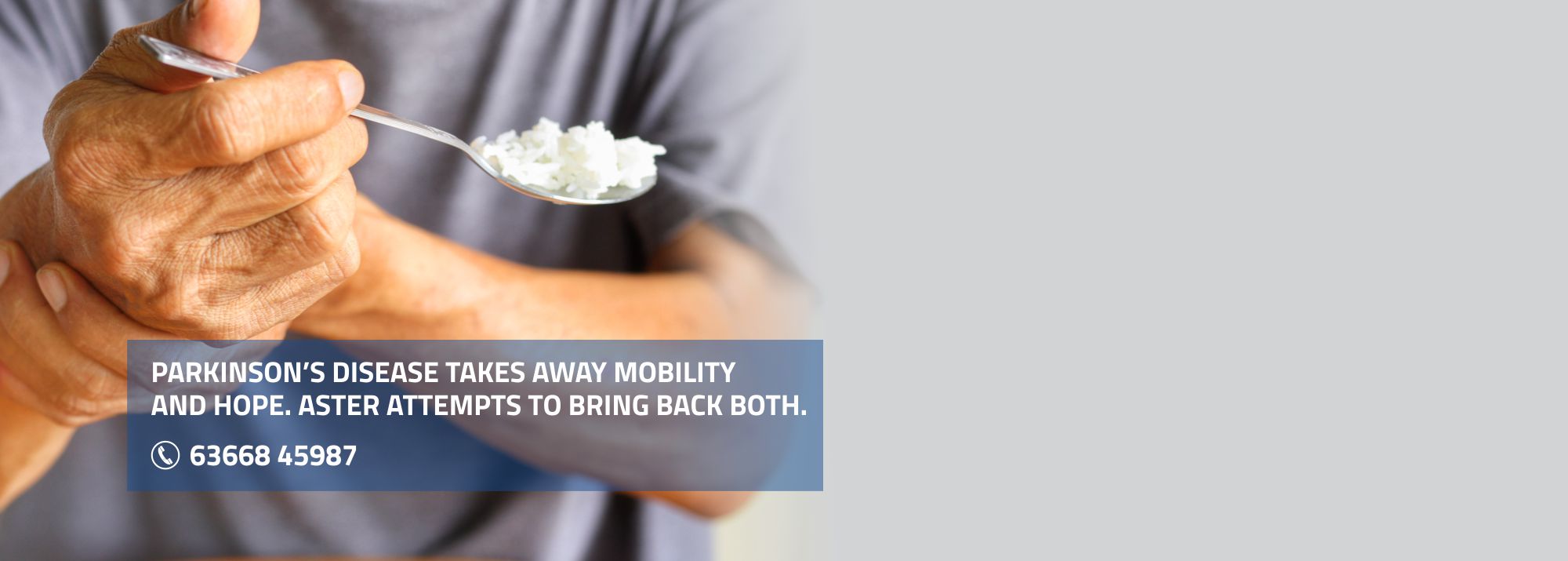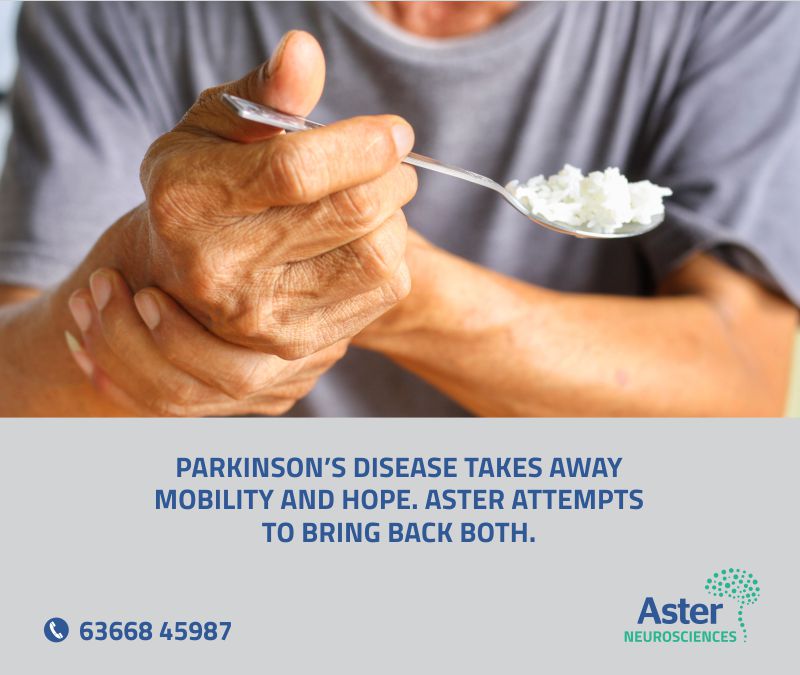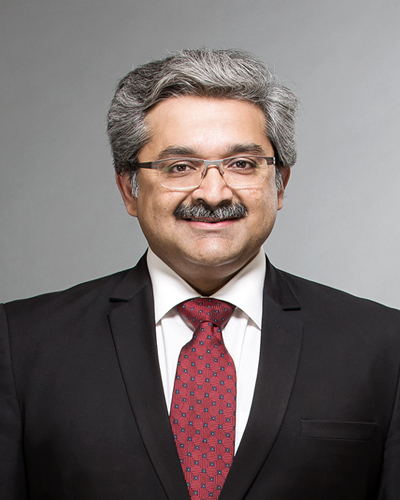DEEP BRAIN STIMULATION (DBS)
Parkinson's disease is one of the most common movement disorders caused by the degeneration of DA-producing part of the brain called the substantia nigra. As DA is an important neurotransmitter that enables movement control, a decrease in DA leads to various symptoms of Parkinson’s disease
The disease is slow in progression, but the rate of progression might differ from individual to individual. The continuous loss of DA makes Parkinson’s disease increasingly disabling over time. The most common symptoms of Parkinson’s disease are: Tremor, Slowness of movements (bradykinesia), Limb rigidity, Gait and balance problems. There can be other motor and non-motor symptoms, and patients may have one of more of these symptoms depending on the disease severity.
The cause of Parkinson's disease remains unknown. Although there is no cure, treatment options vary and include medications and surgery.
Dr. Ravi Gopal Verma
Lead Consultant - Neurosurgery & Chief of Neurosciences
MBBS, M.Ch (Neurosurgery), FMISS
Dr. Ravi Gopal Varma, Chief of Neurosciences and Lead Consultant Neurosurgery, at Aster CMI Hospital, is a highly qualified Neurosurgeon, with a special interest in Movement Disorders, and brings with him more than 20 years of experience.
Dr. Varma has undergone training in all aspects of Functional and Stereotactic Neurosurgery which includes specialized surgery for Epilepsy,Movement Disorders,and Chronic Pain. His surgical expertise covers other branches of neurosurgery including Paediatric,Vascular and Endoscopic Neurosurgery. He is one of the few neurosurgeons,in India,with the large experience with DBS surgery for Parkinson’s disease. Before joining Aster CMI,the doctor had been instrumental in setting up and running the highly successful Institute of Neurosciences at M. S. Ramaiah Medical College and Hospital,where he was Professor and Head of Neurosurgery since 2008.
He is also trained in stereotactic and functional neurosurgery, and neuro-oncology And has been a part of several research projects on brain tumours.
- Established the MCh program to train Postgraduate doctors in Neurosurgery at the Institute of Neurosciences, MSRMC, Bangalore.
- Established a fully functional and successful Movement Disorder Program at M.S.Ramaiah Medical College, Bangalore.
- Initiated a DBS program for the treatment of Parkinson’s disease at NIMS, Hyderabad.
- Initiated a DBS program for the treatment of Parkinson’s Disease at KEM Hospital, Mumbai.
- Initiated a DBS program in Apollo Hospital, Hyderabad.
- Was selected for a DBS workshop with advanced training in the Netherlands, as a part of a prestigious Indo-Canadian collaboration.
- Organized the first International Workshop on Surgery for Movement Disorders at M.S. Ramaiah Memorial Hospital, Bangalore. It was the first time in the world that a live DBS surgery was relayed to an interactive forum.
- Served as Member of the Board of Studies, NIMHANS, for a tenure of 3 years.
- Was invited as Guest Speaker at Hindustan Times Leadership Summit, New Delhi, where he shared the dais with other dignitaries like HH. Dalai Lama, Dr. Manmohan Singh, Al Gore and the RT. Hon. Gordon Brown. He is the first Neurosurgeon to be invited to speak at the HT Summit, where he spoke on “Unravelling the Brain’s Enigmas”.
- Designated Visiting Professor at the Raman Research Institute.
- Dr. Varma also has the distinction of having conducted the first successful DBS surgery for Neuroacanthosis in India and third in the world.
This therapy started developing in 1987 and is backed by decades of research, innovation, and experience. There is a lot of clinical evidence and it is supported by 5 Level 1 clinical studies—the highest quality of evidence. As of 2017, more than 150,000 people have received Deep Brain Stimulation (DBS) worldwide.
The following are 6 major outcomes of the Deep Brain Stimulation (DBS) procedure:
- Reduces dyskinesia and fluctuations
- Up to 5 additional hours of good movement without dyskinesia
- Treats tremors and rigidity
- Improves activities of daily living
- Works day and night
- Improves quality of life
A lot of research has gone into finding the a suitable patient for Deep Brain Stimulation (DBS). Preliminary screening can be done by answering following four questions to see if Deep Brain Stimulation (DBS) therapy may be useful for you.
- Are your medicines not able to control your symptoms completely throughout the day – Yes/No
- Is troubling dyskinesias (involuntary excessive movements) becoming a problem for you? – Yes/No
- Has your frequency and dosage of DA drugs increased in the last few months? – Yes/No
- Are drug combinations causing side effects such as: sleepiness, nausea, hallucinations, confusion/other thinking problems, lightheadedness upon standing, behavioral/personality changes? – Yes/No
"Yes" to some of the questions above provides you a guidance and you should further ask your doctor if Deep Brain Stimulation (DBS) Therapy is right for you. Deep Brain Stimulation (DBS) might be able to help you."Yes" to some of the questions above provides you a guidance and you should further ask your doctor if Deep Brain Stimulation (DBS) Therapy is right for you. Deep Brain Stimulation (DBS) might be able to help you.
Deep Brain Stimulation (DBS) has been in use for nearly 30 years. Any possible risks and complications are well known and can be easily predicted. It is a relatively safer procedure with minimal risk.
Our Deep Brain Stimulation (DBS) Speciality Clinic at the hospital can provide you with the detailed information on potential complications and risks involved in the procedure.
There is a window of opportunity where Deep Brain Stimulation (DBS) is helpful for you. Deep Brain Stimulation (DBS) Therapy is no longer an option when:
- Medications stop improving your symptoms
- There is severe disability.
- Surgery is not advisable for any other contraindication
Think Earlier – A lot of people assume that Deep Brain Stimulation (DBS) Therapy is a last-ditch effort to preserve your way of life. This however is not true, and Deep Brain Stimulation (DBS) should be considered and evaluated when your medications are becoming less effective at controlling your movements. Speaking with a Deep Brain Stimulation (DBS) expert can help you find the right answers - it's never too early to talk with your doctor about Deep Brain Stimulation (DBS), and it's important not to wait too long.
- Consultation with our doctors at Aster.
- If Deep Brain Stimulation (DBS) is a treatment option for you, extended examinations are conducted
- Once it has been established that there are no contraindications, and you have provided consent, we can proceed to the admission for the surgery.
- Pre—operative management of medication and preparation are conducted.
- Surgery is performed, and patients are usually kept awake with light sedation, to better test brain functions, effects and side effects.
- Patients are then introduced to the Deep Brain Stimulation (DBS) neurostimulator, it‘s programming, and functional testing
- Transfer to a rehabilitation clinic, if required.
- Regular aftercare for outpatients (at least once a year) and follow-up care for inpatients, if needed.


